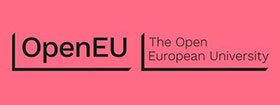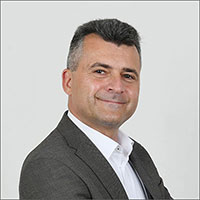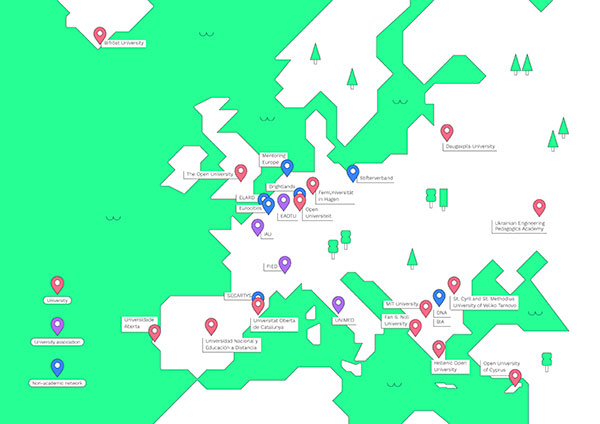Learning and researching without borders
Interview with Petru Curseu, professor of Organisational Behaviour and project leader within OpenEU
Studying at different universities in Europe without ever leaving your home town. That is exactly what OpenEU stands for. Ten open universities have joined forces to make education and research truly cross-border. Together, they are working on major social challenges and providing opportunities to people who previously had little or no access to higher education.
Professor Petru Curseu of the Open Universiteit (OU) has been involved in this ambitious project from the start.

'We are making education truly accessible to everyone'
'Many international networks already exist, but OpenEU is unique: it is the first alliance of open universities,' says Petru. 'We share a clear mission: to make higher education accessible to everyone, wherever you live and whatever your background is. Thanks to this collaboration, we can respond more quickly to themes that affect us all, such as digitalisation, climate change and digital and financial literacy. And we ensure that studying is also possible for people who are often excluded: from residents of remote areas to migrants, refugees and women in STEAM fields – studies in science, technology, engineering, arts and mathematics.'
Learning without borders
Where other universities focus primarily on physical mobility – studying or working abroad for a period of time – OpenEU has opted for something new: cognitive mobility. Petru: ' Knowledge travels, people don't. Complex issues don't stop at national borders, so neither does our collaboration. This requires a broader view and the embrace of new perspectives. Students and researchers learn to look beyond borders without having to turn their lives upside down. In this way, we create recognised learning pathways that we can offer together. Think, for example, of microcredentials – short recognised modules within higher education.'
'Knowledge travels, people don't. Complex issues don't stop at national borders, so neither does our collaboration'
Collaborating and innovating
Bridging borders is not always easy. Different countries, different rules, so you have to dare to take steps. The first successes are already there: the very first joint bachelor's degree has been accredited and will start in February 2026. A collaboration between the OU and its Spanish partners Universitat Oberta de Catalunya (UOC) and Universidad Nacional de Educación a Distancia (UNED). In addition, the universities have recently established a joint Open Science and Innovation policy, so that research results will not only be shared but also better utilised. A task in which Petru himself is intensively involved.
Science for society
'The distance between science and society sometimes seems great, but with OpenEU we are working to bridge that gap. We want to make research accessible to everyone. Open Science is a step in the right direction, but it means more than just making data public,' Petru emphasises. 'If information cannot be found or understood, it is of little use. Take a look at citizen science, for example: research in which citizens themselves participate. This is also reflected in the Open Science and Innovation policy. It often about themes that directly affect them. That makes science tangible and relevant. It does require a new way of thinking in the academic world, but it brings science closer to society.'
'We want to make research accessible to everyone. Open Science is a step in the right direction, but it means more than just making data public .'
The future of OpenEU
After the first year, Petru looks ahead with optimism: 'We have already gained fresh insights and innovations that we want to hold on to. But now the main thing is to really achieve the many objectives. Only then is it time to innovate further and take the next step. Our goal is for OpenEU not to be a temporary project, but a permanent movement. A movement that makes lifelong learning and international cooperation possible for everyone.'

About Petru Curseu
Prof. Dr. Petru Lucian Curseu (1975) studied psychology in Cluj-Napoca (Romania) and obtained his PhD from Tilburg University in 2003. After a period at the Department of Organisation Studies in Tilburg, he now works at the Open Universiteit. His research focuses on team dynamics, social cognition and decision-making. He has published in the Journal of Applied Psychology, Organisation Studies, Leadership Quarterly, Human Resource Management Review and the European Journal of Work and Organisational Psychology, among others. At the OU, he is professor of Organisational Behaviour and project leader for work package 4 of OpenEU.
Want to know more about OpenEU?

NB Click on image for large format

Funded by the European Union. Views and opinions expressed are however those of the author(s) only and do not necessarily reflect those of the European Union or the European Education and Culture Executive Agency (EACEA). Neither the European Union nor EACEA can be held responsible for them.
